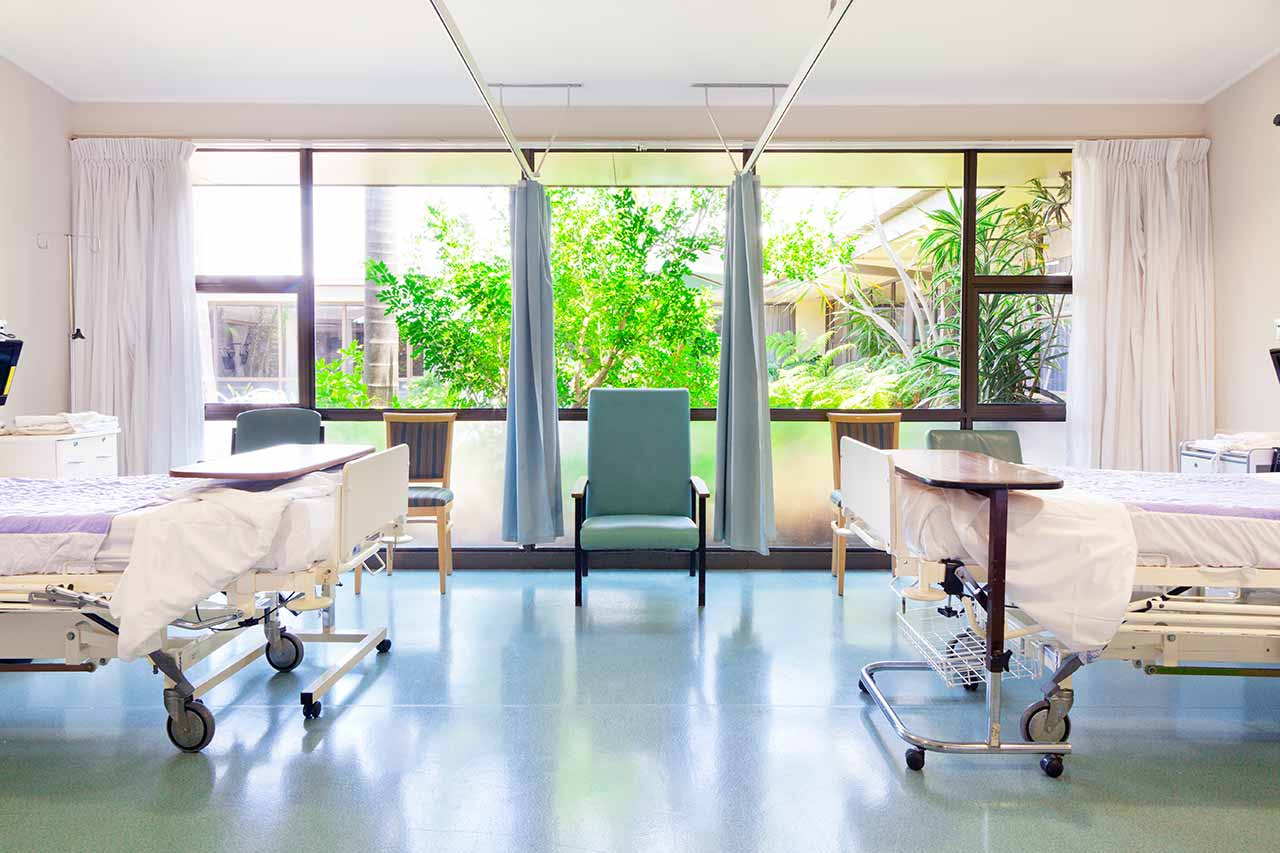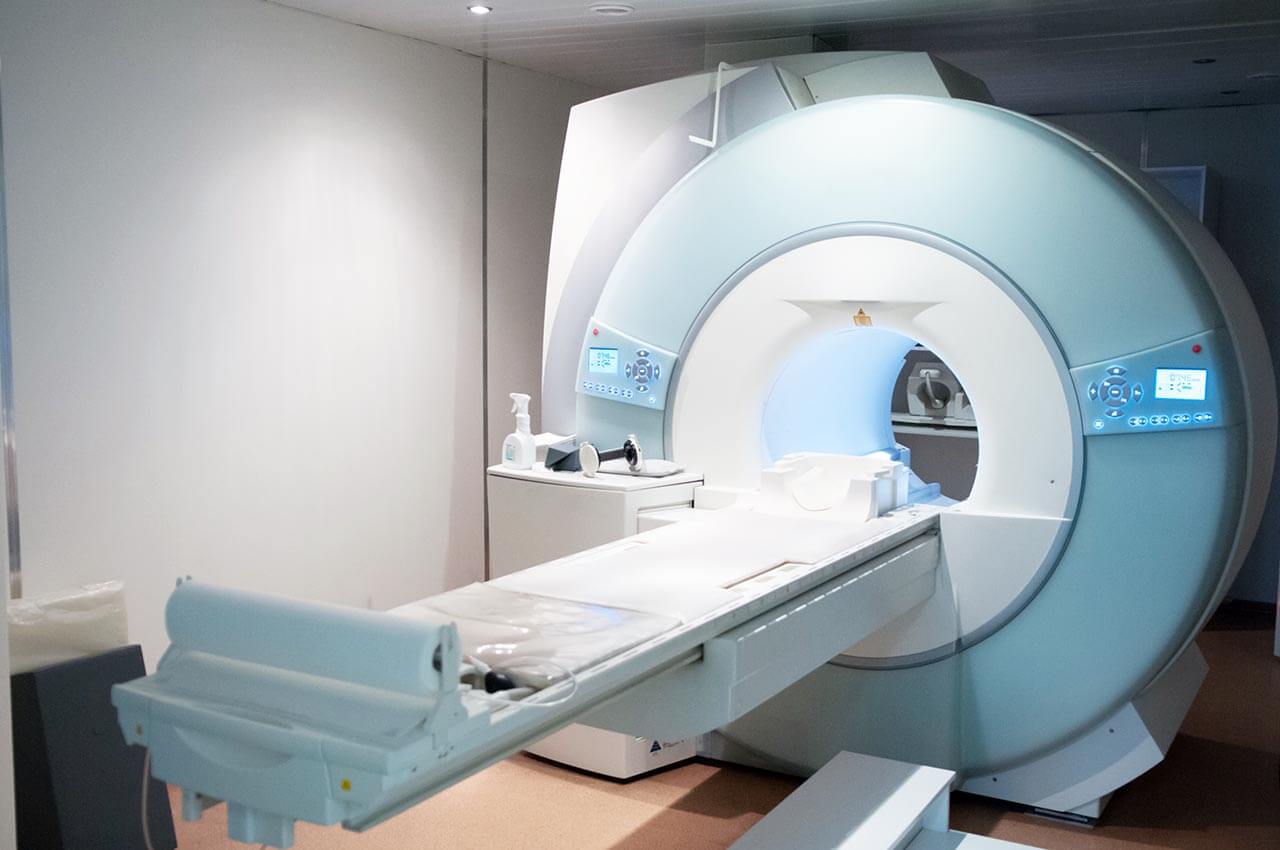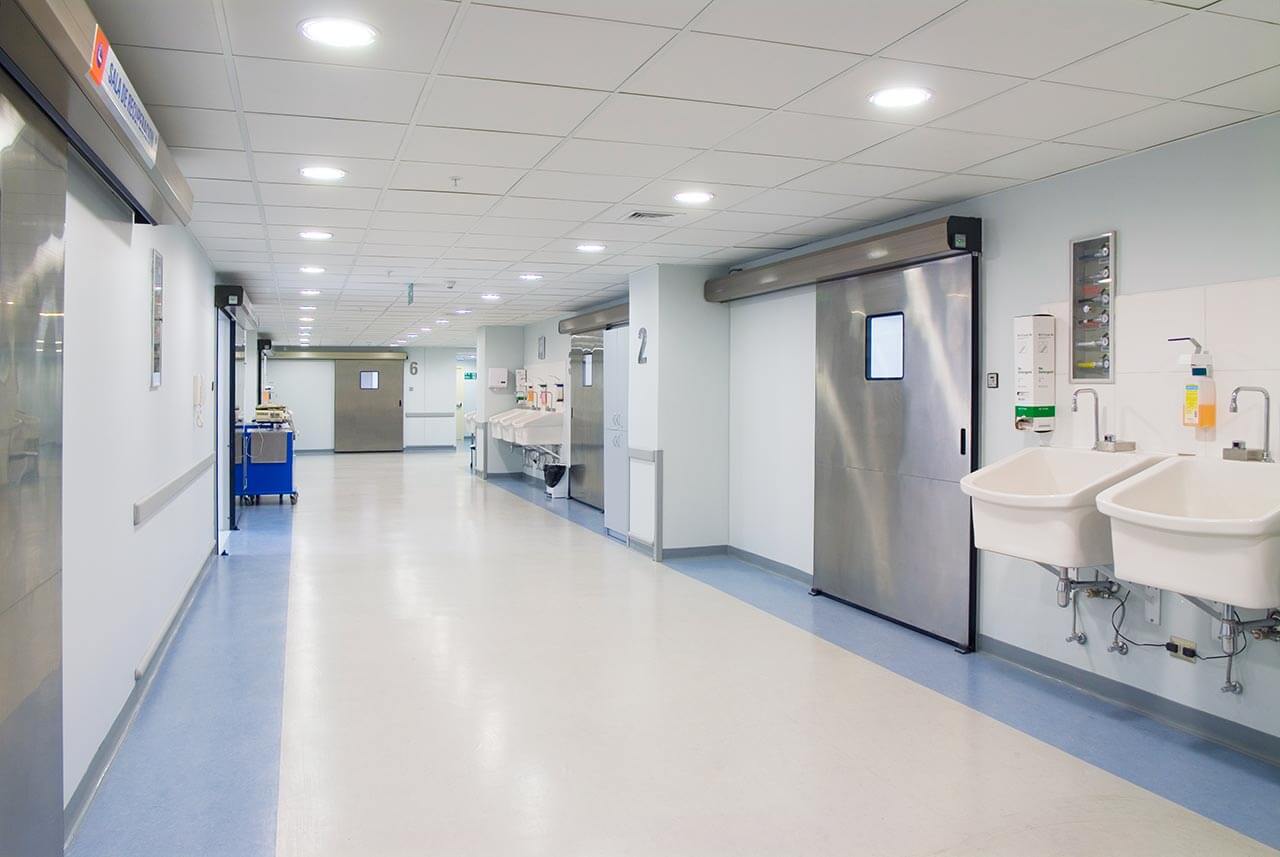
The program includes:
- Initial presentation in the clinic
- clinical history taking
- review of medical records
- physical examination
- laboratory tests:
- complete blood count
- general urine analysis
- biochemical analysis of blood
- inflammation indicators (CRP, ESR)
- indicators blood coagulation
- blood culture
- neurological examination
- CT/MRI scan
- neuropsychological tests (on indications):
- ENMG (electroneuromyography)
- EEG (electroencephalography)
- SEPs (somatosensory evoked potentials)
- VEPs (visually evoked potentials)
- BAEP tests (brainstem auditory evoked potential)
- lumbar puncture with subsequent bacteriological CSF examination,
CSF smear microscopy, inoculation, and other diagnostic techniques - consultation of related specialists
- symptomatic specific treatment
- the cost of essential medicines and materials
- nursing services
- control examinations
- full hospital accommodation
- developing of further guidance
Required documents
- Medical records
- Cerebrospinal fluid analysis, PCR (if avsilable)
Service
You may also book:
 BookingHealth Price from:
BookingHealth Price from:
About the department
The Department of Neurology and Epileptology at the University Hospital Saarland Homburg provides the full range of diagnostic and therapeutic services to patients with diseases of the nervous system. The main clinical activities include the diagnostics and treatment of cerebrovascular accidents, inflammatory diseases of the nervous system, neurodegenerative disorders, and epilepsy. The doctors of the medical facility have high-tech diagnostic equipment for a comprehensive assessment of the structure and functions of the brain and spinal cord, as well as peripheral nerves. The department's neurologists cooperate closely with neurosurgeons and neuroradiologists, thanks to which the specialists can cooperatively develop an optimal treatment regimen. During the treatment, the department's specialists most often use drug therapy (pills, injections, and infusions), botulinum toxin therapy, physiotherapy procedures, and modern neurostimulation methods. The department has 85 beds to accommodate inpatients. The department is headed by Prof. Dr. med. Klaus Fassbender.
One of the most important focuses of the department's work is stroke treatment. For this purpose, the department has a modern Stroke Unit with 16 beds. The Stroke Unit has state-of-the-art equipment and effective monitoring systems. Patients with all types of stroke can receive competent medical care here. When providing emergency care, doctors use thrombolytic therapy, catheter angiography, as well as mechanical removal of a blood clot that caused vascular occlusion and disrupted the blood supply to the brain. After providing first aid, treating stroke complications and detecting the causes of the condition, an individual plan is developed for the prevention and correction of risk factors such as high blood pressure, diabetes mellitus, high cholesterol levels, smoking, being overweight, sedentary lifestyle, etc.
The specialists of the medical facility admit patients with HIV-associated neurocognitive disorders. HIV infection and drugs for its treatment often provoke damage to the brain and spinal cord or peripheral nerves, so HIV positive patients should periodically consult with a neurologist. The diagnostics begins with a study of the patient's medical history and a neurological examination, after which additional tests may be prescribed, including a lumbar puncture, electrophysiological studies, imaging diagnostics (X-ray, CT or MRI), memory testing, etc. The obtained diagnostic data is assessed cooperatively by neurologists and experts in infectious diseases. The specialists carefully think through the treatment tactics, which are based on drug therapy with pills or injectable medications.
The department's team of doctors has been treating patients with multiple sclerosis for many years. It is a chronic autoimmune disease of the nervous system that causes visual loss, facial and body numbness, muscle weakness, impaired coordination, and other symptoms. The pathology most often affects women and develops at a young age (20-40 years). The main examination methods are magnetic resonance imaging of the brain and spinal cord and cerebrospinal fluid analysis. Electrophysiological studies may also be required. As for the treatment, multiple sclerosis remains an incurable disease, so therapeutic measures are aimed at eliminating symptoms and preventing its progression. Depending on the clinical case, a patient may be prescribed drug therapy, including infusion therapy. In addition, the department's neurologists have successful experience in immunotherapy for multiple sclerosis. In the case of exacerbations of the pathology, plasmapheresis or immunoadsorption can be conducted on an inpatient basis. Massage, therapeutic exercises, and physiotherapy procedures also contribute to maintaining good health in patients with multiple sclerosis.
The department's doctors have vast experience in treating patients with movement disorders of neurological origin such as Parkinson's disease, including atypical parkinsonism, tremor, and dystonia. During the diagnostics, blood and urine tests, gait analysis, nuclear diagnostic methods (18F-DOPA PET/CT), and magnetic resonance imaging are used. A treatment regimen is developed for each patient individually and may include duodopa and apomorphine infusions with a special pump, deep brain stimulation, and other methods.
The department has a specialized outpatient clinic where patients with epilepsy or suspected epilepsy can receive effective medical care. To confirm or exclude the diagnosis, the department's doctors perform blood tests, electroencephalography, and CT or MRI scans. At the same time, it is important for the specialists to differentiate epileptic seizures from other convulsive syndromes. In most cases, anticonvulsants are used to treat epilepsy, the dosage and duration of which the attending physician determines individually based on the diagnostic results. If drug therapy does not give the desired result, deep brain stimulation may be conducted. The last-line therapy is epilepsy surgery performed by experienced neurosurgeons.
The department specializes in the diagnostics and treatment of the following neurological pathologies:
- Stroke
- HIV-associated neurocognitive disorders
- Multiple sclerosis and other neuroimmunological diseases
- Movement disorders of neurological origin: Parkinson's disease, atypical parkinsonism, tremor, and dystonia
- Epilepsy
- Polyneuropathies
- Neuromuscular diseases: myopathies, spinal amyotrophies, myasthenia gravis, myotonia, amyotrophic lateral sclerosis, Kennedy's disease, hereditary spastic paraparesis, etc.
- Autoimmune encephalitis
- Other diseases of the nervous system
The department's range of diagnostic and therapeutic services includes:
- Diagnostics
- X-ray scans
- Myelography
- Computed tomography (CT)
- Magnetic resonance imaging (MRI)
- Angiography
- Extra- and intracranial Doppler ultrasonography and duplex sonography of the cerebral vessels
- Cerebral blood flow testing
- Transcranial Doppler ultrasonography and duplex sonography of the cerebral vessels
- Cerebral embolism detection
- Cerebral circulation vasomotor reserve determination
- Brain parenchyma sonography (determination of the size of the cerebral ventricles, brain tumor and brain hemorrhage imaging, and brain stem imaging in Parkinson's disease)
- Cerebrospinal fluid analysis
- Neurophysiological studies
- Electromyography
- Electroneurography
- Assessment of the autonomic nervous system with verification of autonomic cardiovascular reactions
- Electroencephalography (for example, to diagnose epilepsy)
- Evoked potentials (for example, for the diagnostics of multiple sclerosis and amyotrophic lateral sclerosis)
- Reflex testing
- Electronystagmography
- Posturography
- Movement disorder testing (Movement Analysis Laboratory)
- Treatment
- Drug therapy with pills
- Injection and infusion therapy
- Botulinum toxin therapy
- Deep brain stimulation (for example, for Parkinson's disease)
- Physiotherapy
- Other diagnostic and treatment methods
Curriculum vitae
Higher Education
- Wayne State University (USA), Padua University (Italy), Johannes Gutenberg University Mainz.
- Thesis defense, Institute of Pathology at the Johannes Gutenberg University Mainz (Supervisor: Prof. Dr. med. R. v. Baumgarten).
Professional Career
- 07.1989 - 12.1990 Work in the Department of Rheumatology, University Hospital of Basel.
- 01.1991 - 01.1992 Work at the Max Planck Institute of Psychiatry in Munich.
- 02.1992 - 02.2002 Work at the Neurologic Clinic Mannheim, Heidelberg University.
- 04.1997 Habilitation. Subject: "Pathological mechanisms of ischemic neurodegeneration".
- 03.2002 - 11.2004 C3 Professor, Managing Senior Physician, Department of Neurology, University Hospital Göttingen.
- Since 12.2004 Head of the Department of Neurology and Epileptology at the University Hospital Saarland Homburg.
- 11.2006 President of the main commission "Dementia", DGN.
- 07.2007 - 07.2009 Vice President, Planning and Development Strategy, Saarland University.
- 12.2008 Founding Director of the German Institute for the Prevention of Dementia (DIDP).
- 03.2010 Board Member of the European Association of Memory Clinics (EMCA).
- 01.2016 President of the European Association of Memory Clinics (EMCA).
- Since 06.2021 Head Physician of the Section for Neurogeriatrics at the Caritas Hospital Lebach.
Photo of the doctor: (c) Universitätsklinikum des Saarlandes
About hospital
The University Hospital Saarland Homburg is the largest hospital in the city of Homburg and the most important medical facility in the region. The hospital, which currently has 30 specialized departments and 20 institutes, was founded in 1947 and operates on the basis of Saarland University. The hospital plays a leading role in medical education, research, and medical care both in the state of Saarland and throughout Germany. With vast experience in serving foreign patients, the medical facility is also widely known in the international medical arena.
The pride of the hospital is state-of-the-art equipment that allows the doctors to perform high-precision comprehensive diagnostics and the most sparing treatment even if a patient has a severe pathology. Patients are offered innovative medicine based on the very latest scientific achievements. At the same time, the hospital offers many therapeutic methods that are used only in leading medical centers in Europe, including da Vinci robot-assisted surgery, CAR T-cell therapy, TAVI and MitraClip catheter-based procedures, innovative laser procedures, etc. Great importance is paid to ethical and social competence. The hospital is constantly improving the work of its medical personnel and infrastructure to provide medical services that meet the highest standards.
As a multidisciplinary medical complex, the hospital offers highly effective treatment of the full range of common diseases as well as rare and severe pathologies. The efforts of the medical staff, which includes over 600 doctors and 2,000 nurses, are focused on the patient and their unique needs and desires. The doctors always devote enough time to personal communication with their patients, provide them with moral support, and are sympathetic to every life situation.
Photo: (с) depositphotos
Accommodation in hospital
Patients rooms
The patients of the University Hospital Saarland Homburg live in comfortable single, double, and triple patient rooms with a modern design. Each room is equipped with an ensuite bathroom with a shower and a toilet, as well as everything else necessary: a comfortable bed, a bedside table, a TV, and a telephone. In addition, enhanced-comfort rooms and specially equipped rooms for people with disabilities are available for the patients.
Meals and Menus
The hospital offers healthy and delicious meals three times a day: buffet breakfast, dinner with a wide choice of dishes for every taste, and a light supper. The menu features dietary and vegetarian dishes. There is also a cafeteria on the territory where one can taste delicious dishes and have a cup of coffee, tea, or some refreshing drinks
Further details
The standard patient rooms include:
Religion
The hospital regularly hosts catholic and evangelical devine services. The services of representatives of other religions are available upon request.
Accompanying person
During an inpatient program, an accompanying person can stay with you in the patient room or in a hotel of your choice.
Hotel
During an outpatient program, you can stay in a hotel of your choice. The managers will help you choose the most suitable options.





